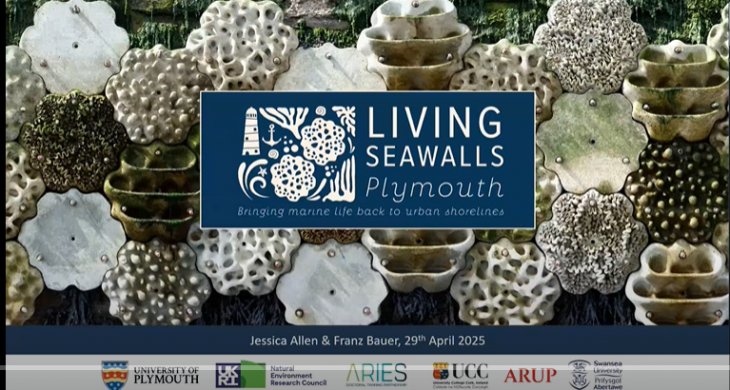
Living Seawalls in Plymouth 29th April 2025 Postgraduate Researchers Franz Baur and Jess Allen, University of Plymouth
Postgraduate Researchers Franz Baur and Jess Allen, University of Plymouth presented their research for the Living Seawalls project. In this talk, they provided an overview of the ‘Living Seawalls in Plymouth’ project, a marine eco-engineering installation with benefits for nature and human society alike. They discussed the biological monitoring, ecosystem services, and social perceptions of the installation.
Modern coastal infrastructure (e.g., seawalls, groynes) is often characterised by smooth, vertical surfaces that are engineered in stark contrast to the natural topography of rocky shores. Natural benthic habitats contain a multitude of structural features (e.g., crevices, pits, rockpools) that provide ecological benefits to marine organisms by protecting them from heat stress, wave action or predation. The lack of these structural features on urbanized shorelines therefore often results in a loss of habitat for marine life. ‘Living Seawall’ panels are designed to mimic naturally occurring structures (e.g., textured surfaces, oyster reefs, kelp holdfasts) and can thereby increase habitat availability for marine species on coastal infrastructure.
